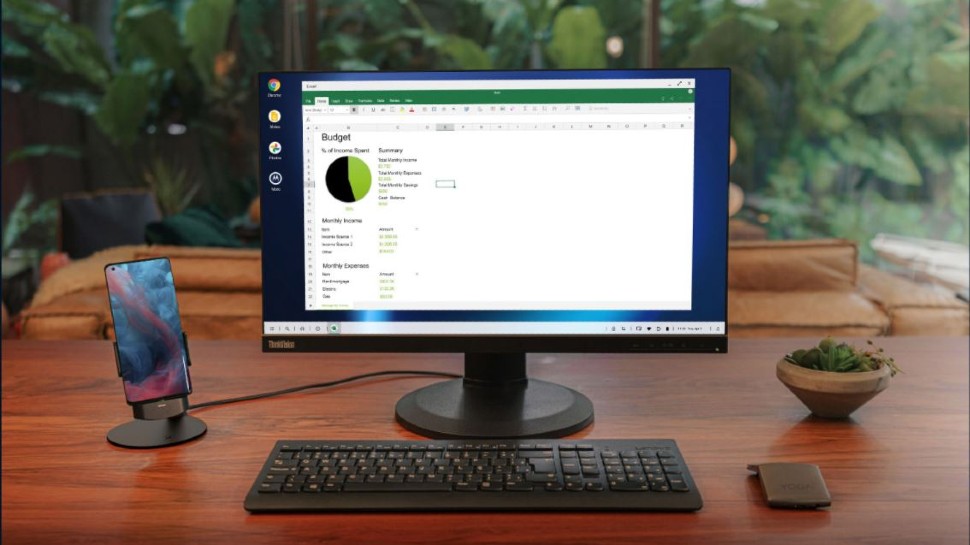Motorola is once again trying to make your phone into a PC
The Edge+ devices can be plugged into an external monitor for a PC-like experience.

Sign up for breaking news, reviews, opinion, top tech deals, and more.
You are now subscribed
Your newsletter sign-up was successful
Motorola is taking another stab at making mobile phones that can turn into desktop PCs a thing.
The company has unveiled a new feature for its Edge+ smartphone, called Ready For, and it's essentially its version of the Samsung DeX, albeit with a few interesting perks of its own.
The idea is simple – connect your Motorola Edge+ smartphone to an external display (either a TV, a monitor, or a laptop / tablet) via either USB-C to USB-C cable, or a USB-C to an HDMI cable, and you can use your smartphone's operating system (Android 11), together with all of its apps, in the classic PC landscape mode.
- These are the best business smartphones
- Check out our list of the best portable monitors for remote working and WFH
- We've built a list of the best business accessories out there
Extra features
But that's not all - on April 19, the company will also release a dedicated docker for the phone, giving the Ready For platform a few additional perks. Once connected, users will be able to use the smartphone as either a second screen, an on-screen keyboard, or a touchpad.
It can also be used as a stand for video calls, enabling users to go for the high-quality rear cameras (108MP), instead of the usual front-facing ones. Motorola also promises that the camera will be able pan around to track the movement, making sure everyone is in frame, at all times. It also seems it would be able to zoom in and zoom out, depending on how many people are on the video call.
Motorola hopes people will use the Ready For platform for work, as well as entertainment. It says the platform allows wireless headphones and even game controllers to be connected for a console-like gaming experience. Furthermore, it says consumers will be able to use all the popular entertainment apps, such as Netflix or YouTube.
This is not the first time Motorola has attempted a mobile device that can also be a desktop PC. A decade ago, it released the Atrix 4G Laptop Dock, which was essentially a dumb laptop in which users could dock a smartphone, however it wasn’t a widely popular device.
Sign up to the TechRadar Pro newsletter to get all the top news, opinion, features and guidance your business needs to succeed!
- Here's everything you need to successfully work from home
Sead is a seasoned freelance journalist based in Sarajevo, Bosnia and Herzegovina. He writes about IT (cloud, IoT, 5G, VPN) and cybersecurity (ransomware, data breaches, laws and regulations). In his career, spanning more than a decade, he’s written for numerous media outlets, including Al Jazeera Balkans. He’s also held several modules on content writing for Represent Communications.